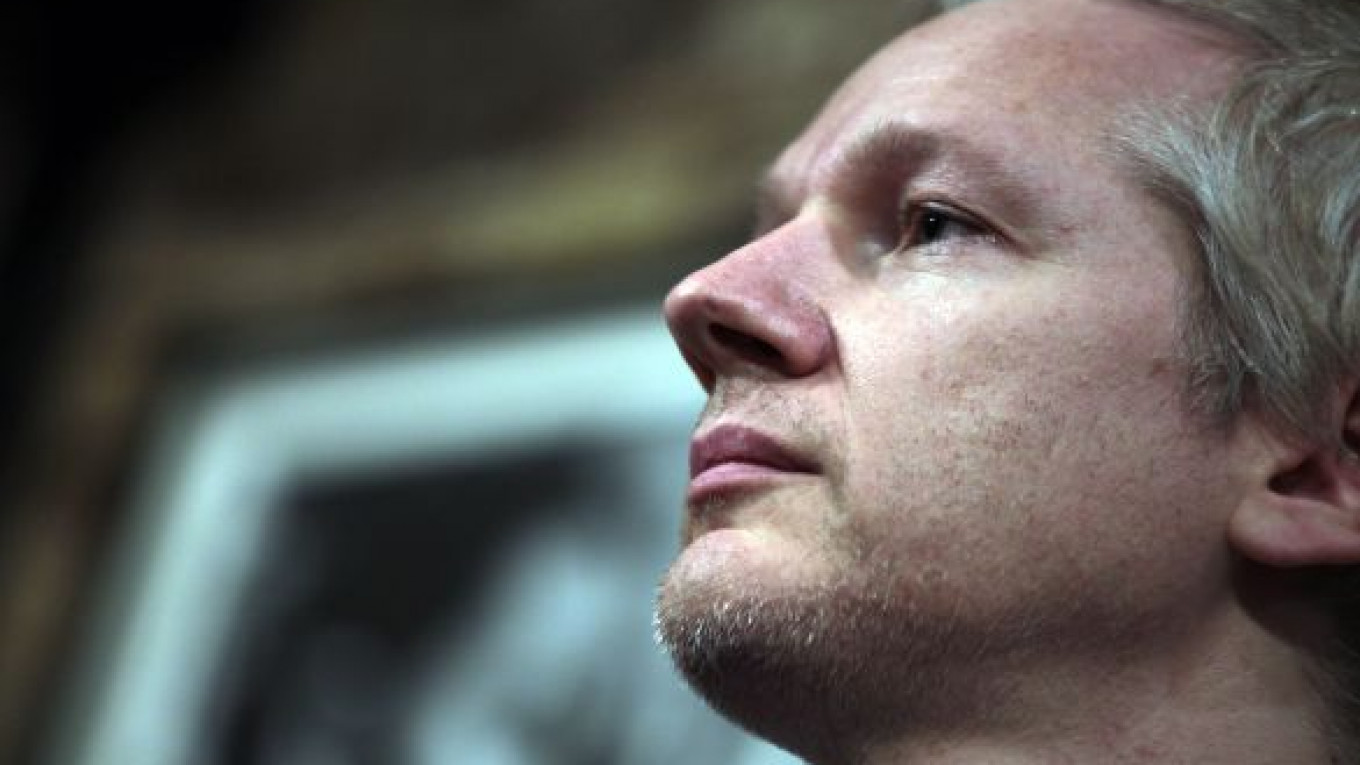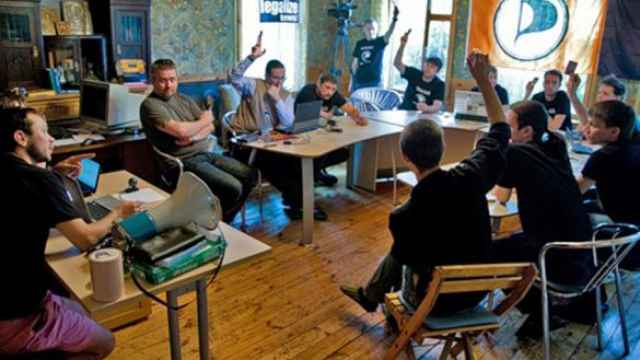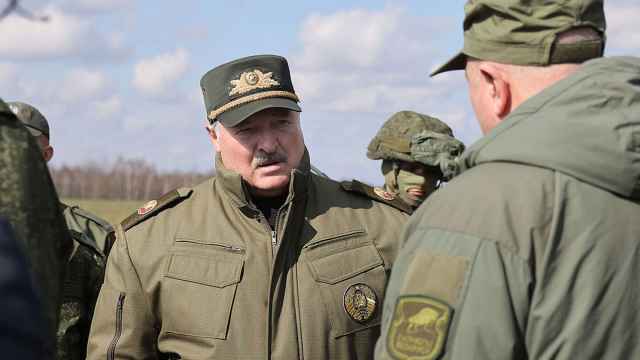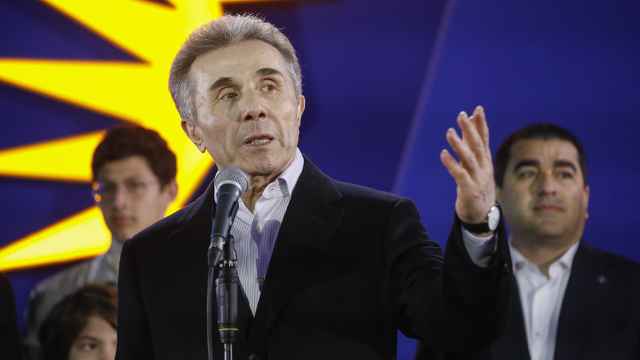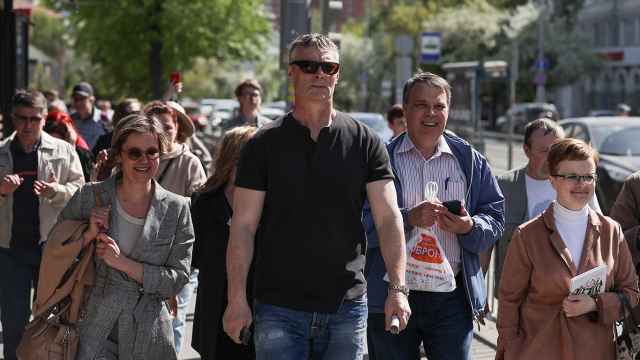A new web site striving to become Russia's answer to WikiLeaks became an online hit this week with the publication of the first photographs of a luxury mansion linked to Prime Minister Vladimir Putin.
No proof exists that the mansion in the pictures is really Putin's, a residence that RuLeaks.net says was built on the Black Sea at a cost of $1 billion for the prime minister's personal use.
But RuLeaks' apparently exclusive photos have paid off handsomely for the team behind the web site, which refers to itself as "The Anonymous" but actually consists mainly of members of the Pirate Party of Russia, a group that opposes copyright laws.
Since the photos were released Tuesday, the site's traffic has soared by 10 times to about 80,000 hits per day, according to RuLeaks' own statistics.
The site's team promised that the mansion photos were only the beginning.
“Never keep quiet! Be afraid of nothing!” the team said in an e-mailed reply to questions from The Moscow Times. “In the time of total lies one word of truth can conquer the whole world. … History is happening before our eyes. An ocean of opportunities lies before us."
The web site, also available at викислив.рф, was launched last month to translate and mirror publications by the original WikiLeaks, but it quickly switched to original content.
The project differs from the handful of other Russian whistle-blowing sites by apparently not following a political agenda and focusing on original leaks, not media reprints. But analysts said it remains to be seen whether the site can keep up with the pace it has set for itself.
The team behind RuLeaks comprises a dozen young and ambitious souls who dream big — and have the support of many Internet activists in their 20s.
The team's members keep their names and locations secret. “Even our wives and children do not know we are The Anonymous,” they wrote in the e-mailed statement.
“Among us are the unemployed and students, office slaves and the laborers of the soil, mothers and fathers, sons and daughters, anonymous brothers and sisters of Planet Earth," the statement said. "Every day we get up and protect the freedom of information."
RuLeaks' domain name is registered under the name of Gregory Engels, a resident of Germany and a co-chairman of the Pirate Parties International movement.
Most RuLeaks editors are activists of the group's local spinoff, the Pirate Party of Russia, party chairman Pavel Rassudov said Thursday.
The web site will help “clean up the state,” Rassudov said.
He would not say where RuLeaks had acquired the photos of the mansion linked to Putin.
The story of the mansion was first broken by businessman Sergei Kolesnikov, who published an open letter to President Dmitry Medvedev on his web site CorruptionFreeRussia.com in December.
The country already has a number of whistle-blowing web sites, and the most well-known are Compromat.ru and Anticompromat.org. Some bloggers are also active anti-corruption activists, including lawyer Alexei Navalny, who leaked a report last year implicating Transneft in a $4 billion fraud case.
But RuLeaks differs from the other sites in the mechanism for submitting — or leaking — information, Rassudov said.
Virtually any document can be leaked to WikiLeaks at present because the Internet makes the process safe and easy, Rassudov said. “You can stop by a McDonald's and use their Wi-Fi to leak it and then just carry on with your day,” he said.
To ensure the safety of its potential whistle-blowers, RuLeaks suggests using privacy-protecting services such as The Onion Router network or the Privacy Box.
But while the software is free and easy to use, it may not be as safe as the RuLeaks team paints it to be. Tracking down a whistle-blower's IP address and location is difficult, but it is not impossible, said Vladimir Degtyaryov, chairman of Internet service provider Demos. “One thing is clear: If a resource is located in Russia, there is no guarantee,” he said by e-mail.
Rassudov predicted that leaks would be on the rise this spring with the beginning of regional parliamentary elections in March followed by the State Duma vote in December.
“Everybody will be leaking dirt on everybody,” Rassudov said.
Vladimir Pribylovsky, the man behind Anticompromat.org, also accepts online submissions, but mostly relies on a few trusted sources who prefer to call first and then arrange a meeting.
Pribylovsky, who also heads the independent Panorama think tank, said RuLeaks might be the only web site to expose dirty political laundry without a political agenda.
Anticompromat.ru, he said, is opposition politics. “I pre-select what I find interesting and don't hide my bias,” he said.
Compromat.ru, reported in July to have been bought by private investor Andrei Rutberg, is profit-driven, Pribylovsky said.
Both web sites have accumulated substantial archives but primarily offer information that was first published elsewhere.
Pribylovsky said RuLeaks has done well so far but has yet to prove its independence and lack of bias.
Big companies, meanwhile, do not seem to be particularly worried about RuLeaks. “We would only be happy with the launch of a web site like this,” said Igor Dyomin, a spokesman for Transneft.
Some experts worried that RuLeaks might become a web site for disgruntled criticism of the government rather than a tool for democratic development.
Yet RuLeaks may also serve as an example for regional journalists, bloggers and youth.
Small teams of 20-somethings made a difference last summer when central Russia was overwhelmed by wildfires and smog, prompting volunteers to team up using local web forums to help firefighting efforts.
One of those forums, Wyksa.ru, operated by half a dozen activists, faced a hacker attack shortly after it started posted daily updates on the situation in burning villages in the Nizhny Novgorod region. No perpetrator was found, but some blamed the attack on the local administration, whose shortcomings in dealing with the fires were exposed by the site.
The original WikiLeaks is also building up ties with Russia, as it has teamed up with Russian Reporter magazine and Novaya Gazeta.
Putin has spoken up in support of WikiLeaks founder Julian Assange, who faces sex charges in Sweden. What he thinks of RuLeaks and its publication of the mansion photos this week remains unclear. Putin's press office had made no comment about the photos of the palace.
A Message from The Moscow Times:
Dear readers,
We are facing unprecedented challenges. Russia's Prosecutor General's Office has designated The Moscow Times as an "undesirable" organization, criminalizing our work and putting our staff at risk of prosecution. This follows our earlier unjust labeling as a "foreign agent."
These actions are direct attempts to silence independent journalism in Russia. The authorities claim our work "discredits the decisions of the Russian leadership." We see things differently: we strive to provide accurate, unbiased reporting on Russia.
We, the journalists of The Moscow Times, refuse to be silenced. But to continue our work, we need your help.
Your support, no matter how small, makes a world of difference. If you can, please support us monthly starting from just $2. It's quick to set up, and every contribution makes a significant impact.
By supporting The Moscow Times, you're defending open, independent journalism in the face of repression. Thank you for standing with us.
Remind me later.


